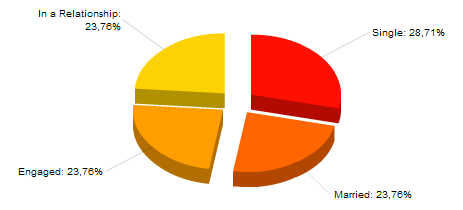Mashups are fun, Guiness is good, Dublin is cool – combine them all and get Mashup Camp 5 in Dublin. The highlight of the Camp was too meet a lot of smart people and talk tech. Some of the highlights:
- Chad Dickerson from Yahoo Developer Network talked about web site performance. According to Yahoo’s experience 80-90% of the performance of a web site is in the frontend and only 10-20% in the backend. I must say that that these are suprising numbers, but as the worlds number 1 web destination Yahoo should know. So improving the front end performance has a huge impact and Yahoo are listing 13 rules to help you do so, as well as the Firefox plugin YSlow to help you analyze a sites frontend performance. YSlow is already a critical part of my web toolkit, too bad that it is very depressing seeing YSlow’s reports on my websites, I have a lot of work to do! Chad also mentioned Yahoos GUI design patterns that can come in handy for anybodyworking with web design. His slides are on http://www.slideshare.net/chaddickerson.
- Performance was also a subject for a later discussion where John Herren and others talked about improving backend performance. The two things that really stuck in my mind was to use a PHP Accelerator to precompile PHP code (instead of doing that on the fly for every request) and to use cookies as a light weight free client side cache.
- There was an interesting discussion about how to find Mashups, especially in a near future when there are mashups built on mashups and the users are not developers but normal mortals. The Search Engines today help us answer the question “what is”, but searching for mashups or apps is more a question of “how do I”. The options discussed covered everything from ranking mashups based on popularity and meta data to using introspection to automatically figure out what the mashups are doing. It would be interesting to have a system that could track the interactions between APIs and Mashups in a way that a developer could take a mashup apart to reuse just the parts he is interested in. Programmableweb.com is the start of such a system, but it is still only built on the basis of that the mashup developers gives the right meta data about their mashups. Since John Musser from Programmableweb was part of the discussion I am hoping to see some of this implemented there soon

- Speedgeeking was as always a part of Mashup Camp, it is basically like speed dating but for demos. 5 minute intervalls to demo your stuff for a new group, and it went on for an hour this time. I built openkapow robots on request and it went pretty well. Building one REST robot to an unknown site every 5 minutes was a risk, but most of them went very well (search openkapow.com for tag “mashupcamp” to find my creations). My Kapow collegue Benjamin demoed his cool Blackberry-LinkedIn-Xing Mashup (also using openkapow). The winner of speedgeeking was the Mashup Camp veteran John Herren and 2nd place as well as the Winner of IBM’s Business Mashup Challenge was Dennis Deery (congrats to you both). Check out one of the most pointless results of the speedgeeking at LOLCatService – the most pointless web service ever.
David Berlind, one of the organisers, have written a good summary of the camp on ZDNet if you want to read more. If you understand Swedish you can also listen to an interview with me from MashupCamp at WhatsNext.se.
All in all it was a great Camp. Not a great number of participants, but the number is less important than the quality of the people. I learned a lot, met great people and came home with my head swirling with ideas. Next Camp is in Mountain View in March and I hope to see you there, if that is too far for you Mashup Camp is also coming back to Ireland next year.



